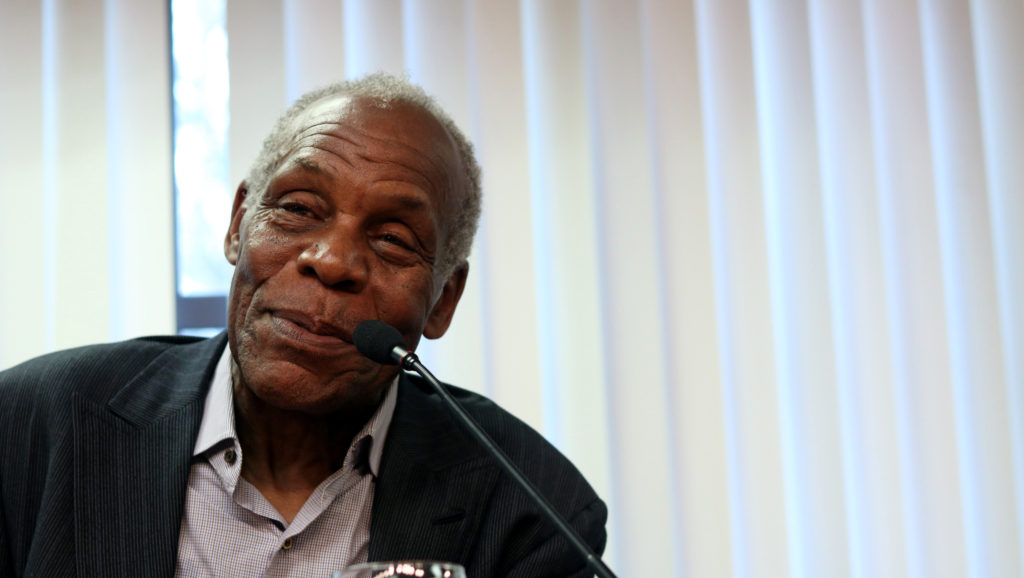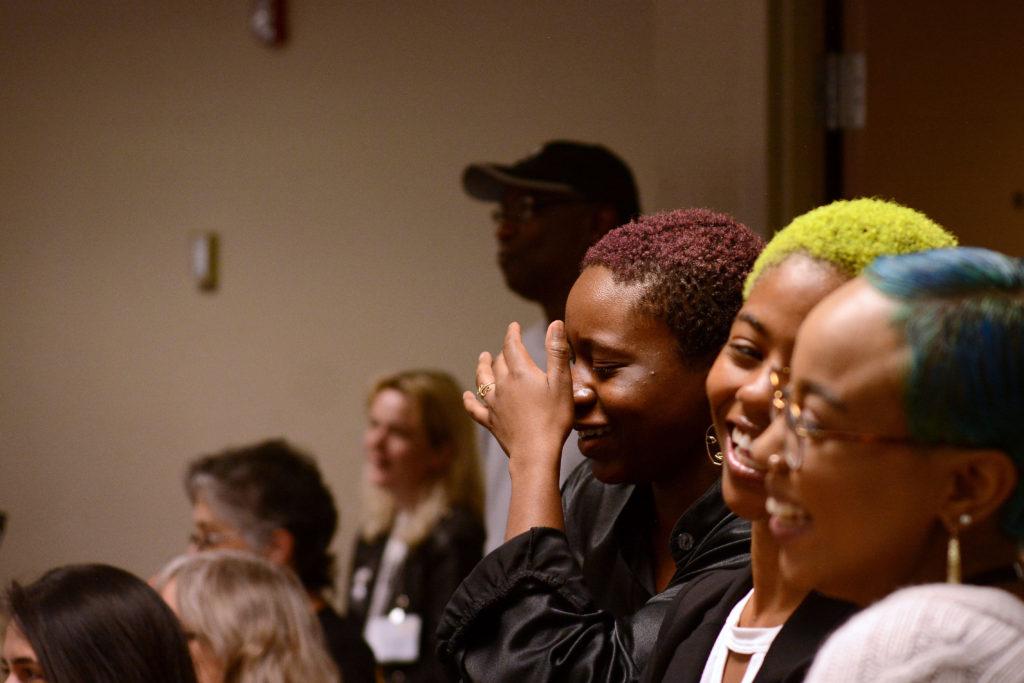When SF State alumnus and Hollywood actor Danny Glover gazed out to a crowd of students from his stage at the SF State Towers Conference Center on Saturday, Nov. 10, he was transported to half a century ago when he and thousands of other students took over the campus to demand change.
“When I look at you today, I see an audience full of young people beleaguered by the same oppressions we faced 50 years ago,” Glover said.
The College of Ethnic Studies held a two-day commemoration of the 50th anniversary on Friday and Saturday.
Glover, 71, was a lead organizer of the longest student strike in the nation’s history in 1968 that resulted in the first ever Ethnic Studies program in the country.
Charming, poised and fresh off a movie set, the actor gave an hour-long speech reflecting on the modern day race relations in this country.
He compared the radicalized oppression experienced by students from the 1968 strike to the systemic violence today’s vulnerable students continue to experience, especially black students.
“We’re still fighting for radical inclusiveness as a bold new frontier for reorganizing society,” Glover said. “Now we have a whole host of emerging problems that originated half a century ago… the oppression and destruction we face is to build on the legacy that came before.”
Glover offered no solutions to problems, but he offered advice that forming coalitions could result in “sustainable activism.”
Dr. Ramona Tascoe, one of the first original strikers to get arrested in 1968, questioned Glover’s notion of sustainable activism when fighting against oppressive structures of power.
“How do we come up against this notion that some institutions are sacrosanct, they shouldn’t be changed?” she said.
Glover advised students to stay unified during times of great tension with administration by using coalitions and inclusive activism.
During the 1968 strike, coalitions among the multiple organizations representing minority students on campus in enabled the successful demand of a department that advocates for racial minorities and offers a more diverse education than solely European-centered.
“We looked at things and connected, and we saw people around the world as our allies,” said Ellen Murray, a striker at the 1968 protest.
The strike ended after several months with the birth of Ethnic Studies, the hiring of more ethnic faculty, and a promise to integrate more minorities’ narratives into the university’s curriculum.
“Ethnic Studies is exactly what all of us need, and we need to get involved,” said Malyah Moore, an educator visiting from Baltimore for the conference. “Old, young, first year, fourth year. Connect with each other, because what we’re doing is the same thing. Supporting our own communities and supporting a bigger community.”
Last week, SF State students did just that. On Thursday, Nov. 8, at least 100 students held a walkout led by BSU leaders, rushing the administration building with bullhorns, picket signs and a list of demands, and cramming into the narrow halls in front of university President Dr. Leslie Wong.
At the top of the list of demands was free housing, as the Bay Area housing crisis gets worse and students are being increasingly forced to find alternative living accommodations just to attend the university.
Wong was not at his office during the protest, but in an interview with the Xpress following the panel discussion, he said he recognizes the importance of a unified campus.
He said he believes that a better university could be created for everyone if the administration students formed alliances and organized together.
“We’re trying to [form alliances] through the different centers that we’ve created in Student Affairs,” Wong told the Xpress. “We try our best to overcome this notion that clubs are independent and autonomous and they do their own thing. I think we could do better in helping them form alliances with other student clubs.”
Black Student Union organizers asked Glover to meet with them in the near future to help strategize change for black students on campus. Glover agreed.








